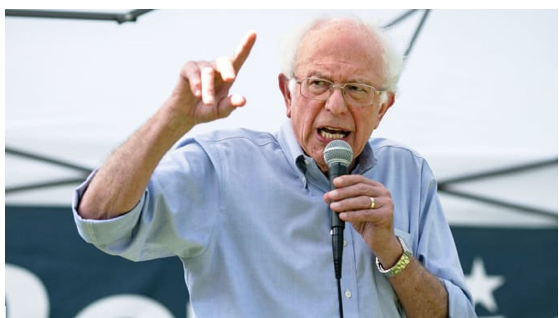CommentsDEEGAN ON LA-A decimated koala bear population is just one of the tragedies of “Australia on fire.” Humans, too, got hurt.
Players and patrons of the Australian Open grand slam tennis event this fortnight, along with millions of others in Australia, suffered their own misfortunes with the fires as they were forced to inhale smoky air and suffocating dust and ash from the blazes that covered a huge swath of the continent.
Is this a precursor to what we can expect in Los Angeles one day soon as our notorious fire seasons get worse each year? Climate change deniers may say no, but residents of Malibu, to cite the most recent local fire tragedy, would disagree, as would all of us who watched the fabled seaside enclave battle the elements a few months ago.
Lost in the politics of inequity, homelessness and less than abundant housing, is the conversation about our environment and the risk of it being upended, again, by fire.
The voice of Green New Dealers and climate change Cassandras grows stronger with time, but not fast and deep enough to land on the political radar of Los Angeles. Nowhere in the run-up to the March 3 primary election -- which includes electing Councilmembers for all even-numbered council district seats and voting for a presidential candidate -- is there much talk about climate change and one of our worst vulnerabilities, which is fire.
Nationally, it’s taken the prospect of a sixteen-trillion-dollar plan offered by Bernie Sanders not only to fire up his far-left base of rabid supporters, but to get the attention of skeptics. Not because of the price tag, but because Sanders wants to end reliance on fossil fuels in ten years, noting that “arresting global warming would put the government in charge of the power sector” and promising that “by 2030, the country’s electricity and transportation systems would run entirely on wind, solar, hydropower or geothermal energy, with the fossil fuel industry footing much of the bill.”
While this does not directly address the dry, hot Santa Ana winds from the desert that kindle our blazes and shoot through our chimney-like canyons, Bernie’s attack on the fossil fuel industry hits a significant nerve.
Always ahead of the nation, California sells more electric cars than anywhere else in the country. The majority of Teslas sold in the United States carry golden state license plates. We, like Bernie, are ahead of the curve.
School kids are learning at an early age that the study of basic environmentalism involves more than understanding photosynthesis and the action of chlorophyll (i.e., that sunlight can synthesize carbon dioxide and water, creating oxygen as a byproduct) and that green spaces act as the planet’s lungs. Now, with an emphasis on reducing or eliminating the use of fossil fuel, children also learn that burning coal and tailpipe emissions create carbon dioxide which, in higher doses, can cause respiratory distress. When the earth can’t breathe, neither can we -- to state it simplistically as if it were a political slogan.
Public awareness of the challenges to our environment caused by the combination of increased levels of carbon dioxide and the reduction of greenery has grown, much like when people began to understand the dangers of the depletion of the ozone layer that shields the Earth from the sun’s ultraviolet radiation. Damage from ozone depletion, however, has been somewhat mitigated over the years by changes in combustion engines. And now, electric engines are part of that mitigation.
Today, Sanders and the New Green Deal advocates are fighting against the primary gaseous culprits that lead to climate change, including carbon dioxide, methane, and nitrous oxide. What comes out of vehicle tailpipes is a contributor to atmospheric harm.
What Bernie is not doing yet is standing on the shores of the Pacific Ocean and asking us to internalize the fact that we are slowly losing our once enviable climate and breathable air.
Another round of fires is sure to hit us in the next several months. What's happened in Australia is a stark warning of what we face here (and across the country) if we cannot convince climate change deniers that we are in great danger.
The national politics of hate and division will get louder as we trudge through this political season, culminating in the November elections. Punctuating that may be what we've seen happen in Australia: a region decimated by fire that can be rightfully thought of as a calling card of climate change. But maybe it could take less than Bernie’s sixteen-trillion-dollar plan to put those flames out here. The choice to make changes in our lifestyles is free of charge.
(Tim Deegan is a civic activist whose DEEGAN ON LA weekly column about city planning, new urbanism, the environment, and the homeless appears in CityWatch. Tim can be reached at [email protected].)














